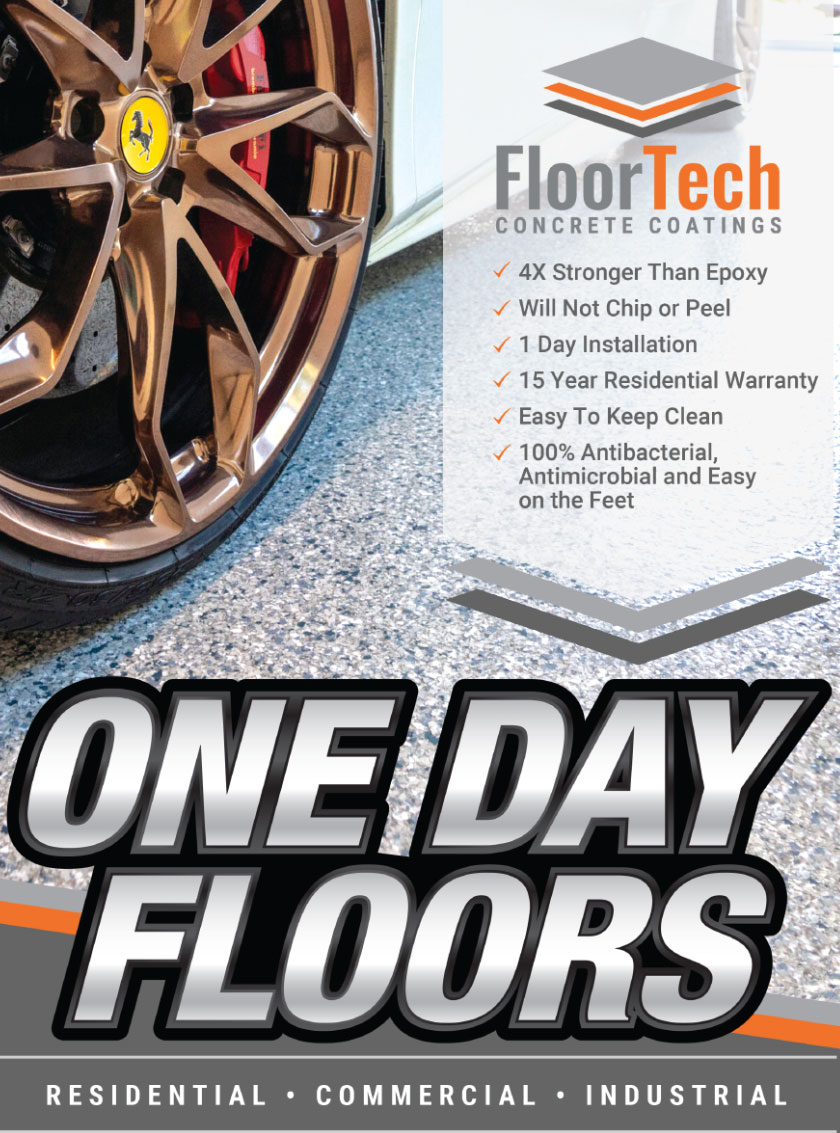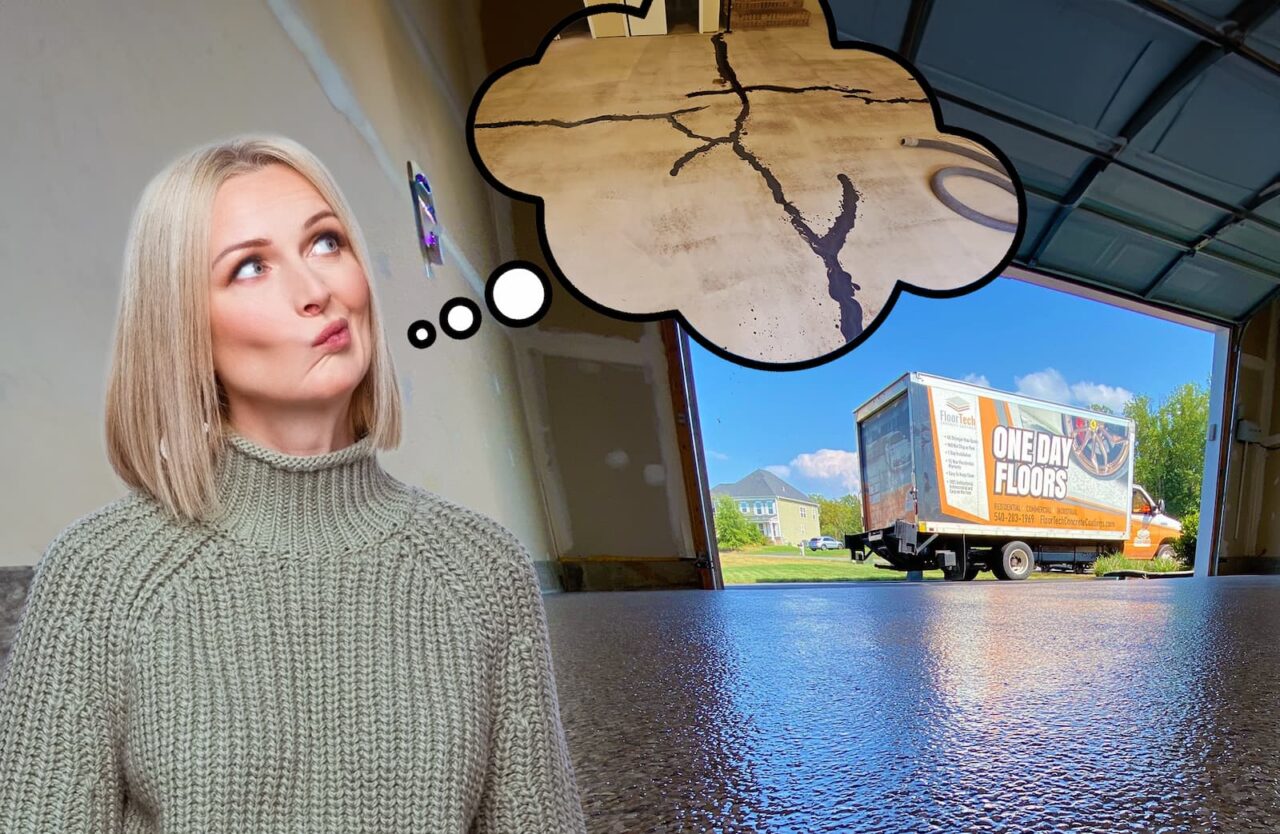Will the Cracks in my Concrete Come Back After FloorTech Fixes Them?
Picture this: You’ve just had your concrete cracks repaired by FloorTech Concrete Coatings, your brand new concrete coating has been applied, and your floor is looking better than ever. But one big question might still be lingering in your mind: Will those cracks come back? It’s a fair question, and we’re here to give you the full scoop!
Will the Cracks Come Back?
The good news? No, those cracks shouldn’t come back—unless there are deeper issues with your concrete’s substrate. The key to preventing cracks from reappearing lies in the type of coating you choose.
At FloorTech, we offer two types of coatings: epoxy and polyurea, and they both behave very differently when it comes to keeping those cracks away. While epoxy might seem like a quick fix, it’s only a temporary solution. Polyurea, on the other hand, seeps into the pores of the concrete and stays slightly flexible, which means it can shift with your concrete as it naturally expands and contracts over time. This flexibility helps to prevent cracks from coming back.
Let’s dive a little deeper into why polyurea is your best bet for long-term durability.
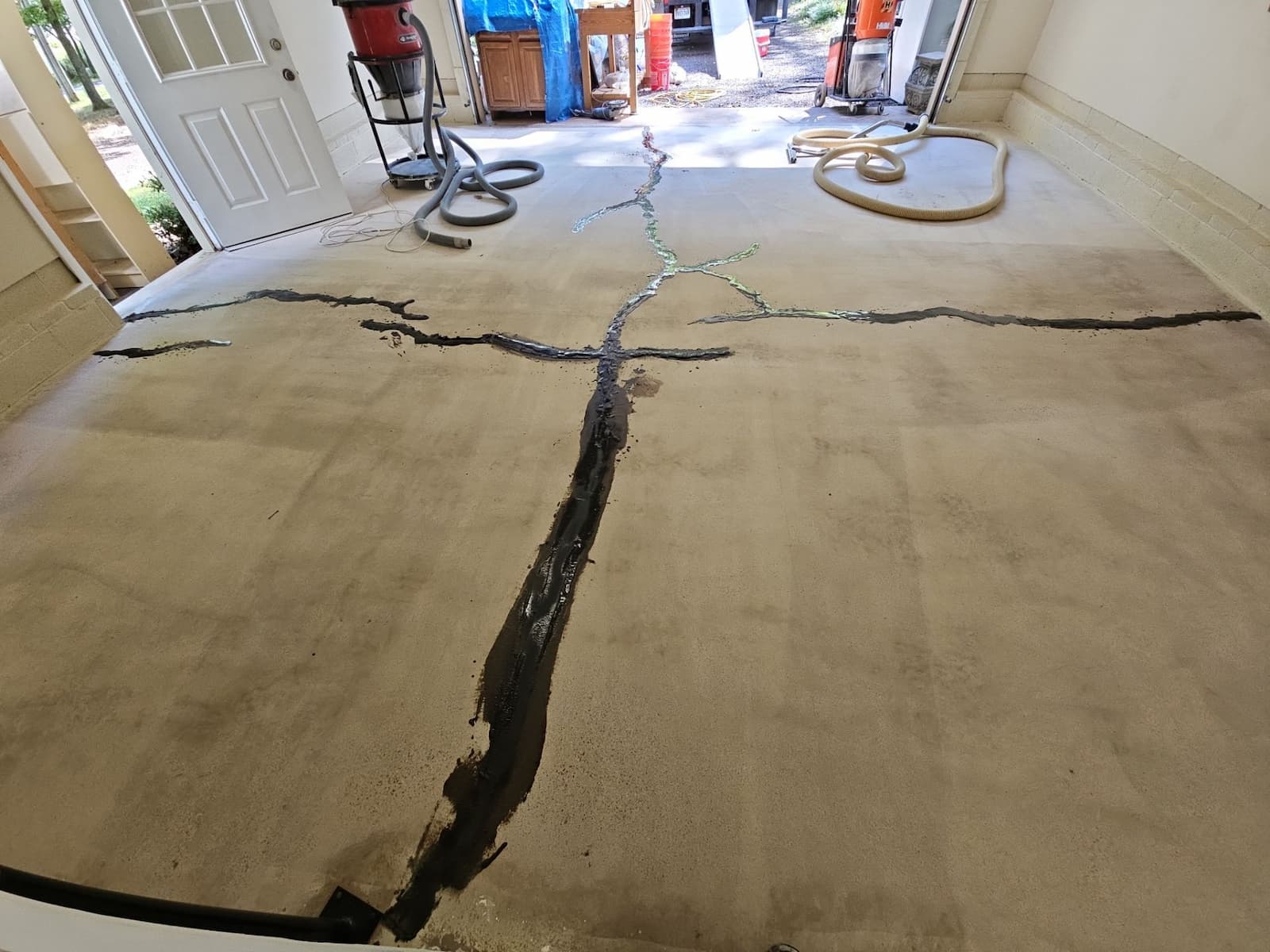
Why Epoxy Coatings Might Not Hold Up Over Time
Epoxy is a popular choice for many home projects, especially for coating concrete floors. It’s a type of polymer, similar to what you’d find in the stretch of rubber bands or the resilience of certain shoe soles. It provides a decent level of protection and can give your floor a nice glossy finish. But here’s the catch: epoxy doesn’t bond very deeply with the concrete.
Epoxy essentially sits on top of the surface, and over time, it starts to harden more and more. While this might sound like a good thing, it’s not. As the epoxy hardens, it becomes less flexible and more brittle. That’s when you start to see cracking, peeling, and chipping—especially if your concrete naturally moves with temperature changes (which it will, especially here in Virginia with our hot summers and cold winters).
If you’ve repaired cracks in your concrete and go for an epoxy coating, those cracks might reappear in the future because epoxy can’t adjust to the shifting and expanding of your concrete. Over time, the once-smooth surface may start showing signs of wear.
The Durability of Polyurea Coatings
Now, let’s talk about polyurea—a true game changer when it comes to concrete coatings. Polyurea is an elastomer, much like the material that gives waterproof raincoats their durability or garden hoses their flexibility. This adaptability is what makes polyurea a far better choice for long-term protection.
Polyurea doesn’t just sit on top of your concrete; it bonds deeply into the pores, creating a much stronger, more durable connection. The magic of polyurea lies in its ability to remain pliable throughout its life. Even as your concrete expands and contracts with temperature changes, polyurea moves with it. That means your coating stays intact, and the cracks you’ve repaired won’t come back.
At FloorTech, we use Penntek’s Pure Polyurea system, which is known for being four times stronger and ten times more flexible than traditional epoxy. This is why we’re confident that once we’ve repaired your concrete cracks and applied our polyurea coating, you’ll have peace of mind knowing that your floor is built to last.
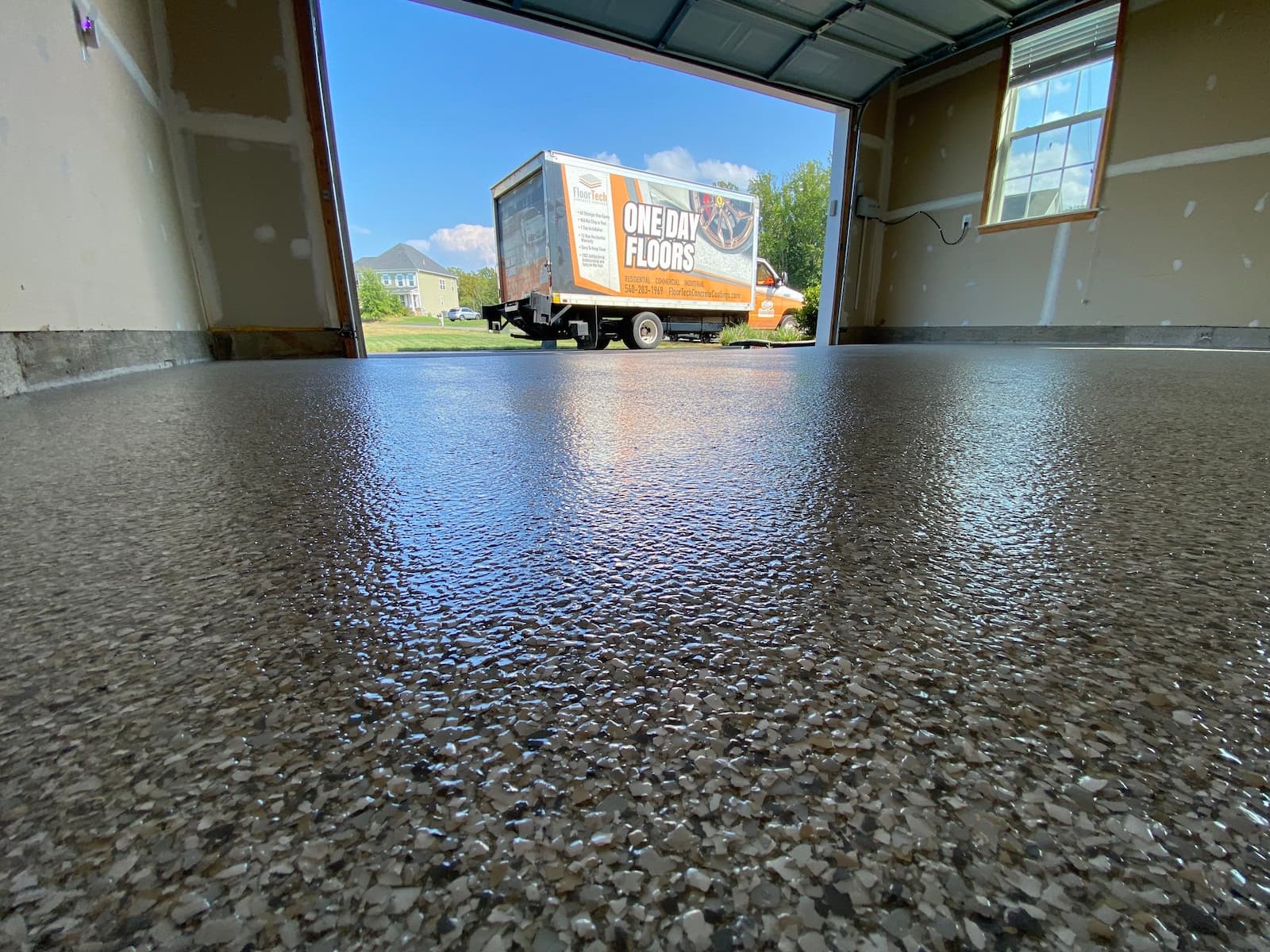
Why Polyurea is the Better Choice for Crack Prevention
When it comes to choosing between polyurea and epoxy, there’s no contest—polyurea is the clear winner. Not only does it offer superior bonding and flexibility, but it also lasts much longer than epoxy. While epoxy coatings might hold up for a few years, they tend to break down more quickly due to their inability to adjust to temperature changes and heavy use.
Polyurea, on the other hand, can last for up to 15 years or more, and it can handle all the wear and tear that daily life throws its way. Whether it’s the heat from car tires, spilled chemicals, or UV rays, polyurea is designed to stand strong, keeping your floor looking beautiful and crack-free.
And don’t worry about weather—polyurea is temperature-resistant and handles the extreme heat of Virginia summers and the cold of winter with ease.
What to Expect from FloorTech’s Installation Process
At FloorTech, we take every step necessary to ensure that your floor not only looks great but also stays strong for the long haul. Our process starts with meticulous preparation. We carefully repair any cracks in your concrete, ensuring that the surface is perfectly smooth and stable.
Once the cracks are filled and the surface is prepped, we apply the Penntek Pure Polyurea system. This involves an aromatic polyurea basecoat that provides a strong foundation, followed by a polyaspartic aliphatic topcoat that adds UV resistance and a shiny, durable finish. The result? A beautiful, long-lasting floor that you can enjoy for years to come.
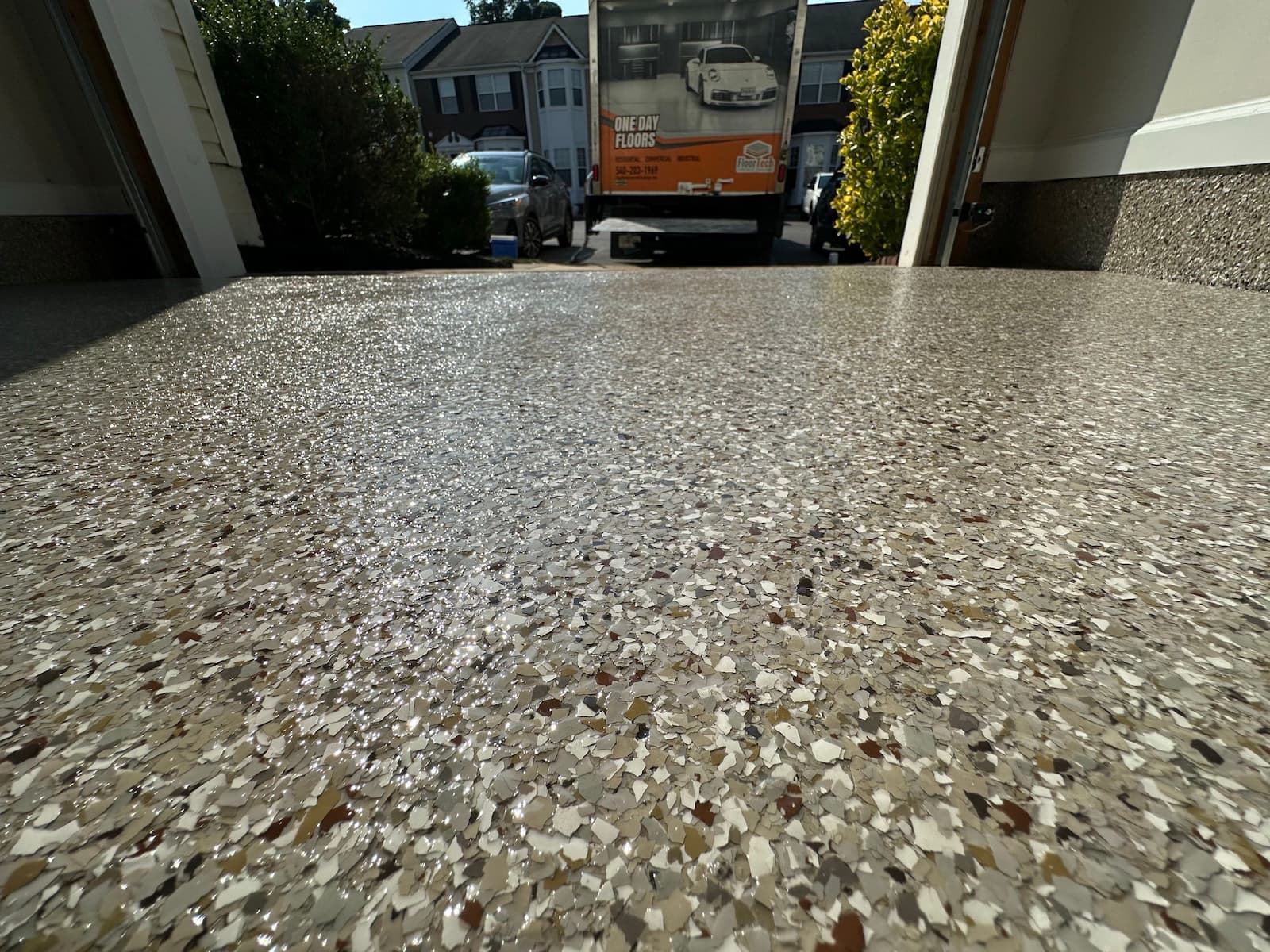
Polyurea Ensures that Your Floor Remains Strong
So, will the cracks come back? With polyurea, the answer is no. Thanks to its deep bonding and flexibility, polyurea ensures that your floor remains strong, even as your concrete naturally moves over time. If you want a concrete coating that not only looks amazing but also prevents cracks from resurfacing, polyurea is the way to go.
At FloorTech Concrete Coatings, we’re here to provide top-notch service and long-lasting results. Ready to learn more about our crack repair and coating options? Contact us today, and let’s get started on transforming your concrete floor!

